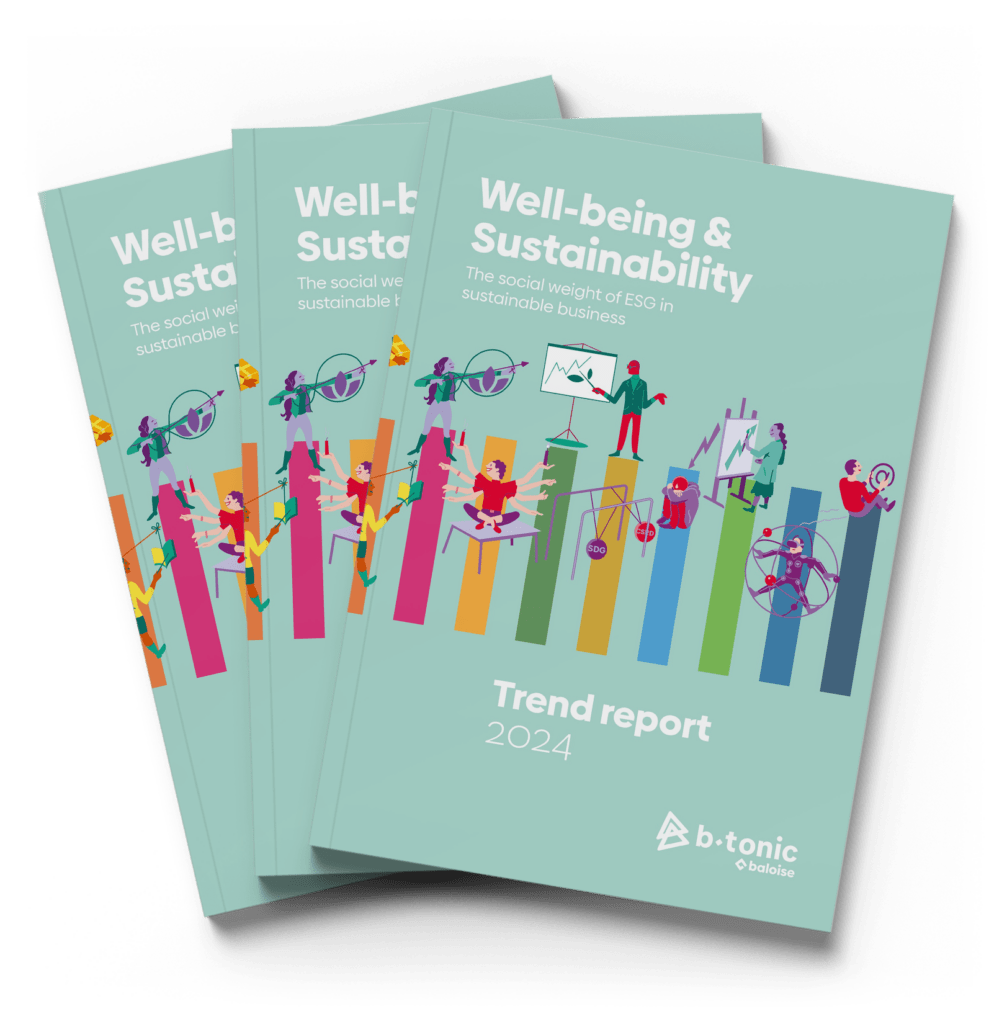Corporate Sustainability: The Key to Success
Sustainability is growing in importance, fueled by the younger generation who believe that a sustainable lifestyle is crucial for the future. This influences companies to contribute to solving societal problems. Businesses that focus on sustainability are called sustainable entrepreneurs.
What does this mean exactly, and why is it important for companies to focus on this?
Duurzaamheid als startpunt van welzijn
To understand what sustainable entrepreneurship means, we first need to explain what we mean by sustainability. Sustainability entails fulfilling our current needs without impeding future generations’ ability to meet their needs.
Sustainability is a broad concept and is not only about being environmentally friendly, but also about ensuring social and economic stability. Although often thought of as reducing environmental damage, sustainability also includes important social aspects such as improving quality of life, ensuring well-being and fair working conditions, and providing equal opportunities for all. That’s also known as social sustainability.
Companies are starting to recognize how important it is to take good care of their employee wellbeing, not only to keep current staff happy, but also to build a good reputation and remain attractive to new talent.
What is corporate sustainability?
Sustainable entrepreneurship means that companies take into account their impact on society. The aim is to conduct business activities that minimize harm to society while still being economically valuable. Sustainability is about ensuring that prosperity is distributed fairly and that social cohesion is strengthened. This means that companies must actively contribute to the environment, the economy, and society to create a balanced and livable world for ourselves and for future generations.
Both large corporations and small businesses can adopt sustainable practices. With the implementation of the CSRD directive, certain companies are even required to take sustainability actions and report on them in an ESG sustainability report.
It’s essential for companies to integrate sustainable entrepreneurship as a core component of their business strategy to remain competitive and relevant in the modern economy. Sustainable entrepreneurship is a dynamic field that continues to evolve as more companies recognize the benefits of investing in sustainable practices, not only for society but also for their business performance and corporate image.
But what are actually the reasons to effectively engage in sustainable entrepreneurship?
9 redenen voor duurzaam ondernemen
1. Innovatie als kern van duurzaamheid
Sustainability drives innovation. It encourages businesses to develop environmentally friendly technologies and ‘green’ product alternatives. This opens markets with eco-conscious consumers, strengthens competitive positions, and increases market share in a changing economy. By engaging in sustainable entrepreneurship, companies not only drive green innovation but also promote their long-term economic success.
2. Aantrekken van investeerders
Investors are increasingly seeking companies that clearly and transparently communicate their efforts in sustainability. This transparency is crucial for making informed investment decisions.
3. Financiering
Companies that prioritize sustainability often gain access to more favorable financing terms. Financial institutions and investors, increasingly focused on environmental and climate risks, prefer companies that proactively reduce their ecological impact. Financial institutions will push for sustainability within companies, meaning they will assess whether a company is sufficiently sustainable to obtain effective financing. Companies are essentially compelled to engage in sustainable entrepreneurship in order to obtain the necessary resources to keep their business operations running.
4. Attracting sustainable suppliers
Sustainability influences the entire value chain. Companies that take sustainability seriously motivate their suppliers to adopt more sustainable practices, leading to a broader sustainability within the sector and providing competitive advantages to forward-thinking suppliers.
5. Aantrekkelijkheid voor medewerkers
Sustainable companies are particularly attractive to young talent, who place great value on social responsibilities within an organization. This focus on social engagement significantly contributes to a positive corporate culture, leading to higher employee engagement and greater satisfaction. By actively investing in employee well-being and continuously improving it, the company enjoys various benefits. On one hand, personnel retention will improve because employees feel valued and are less inclined to leave. On the other hand, this can also boost productivity.
6. Security of existence and long-term benefits
Sustainability ensures the long-term viability of a company. It enhances reputation, stimulates innovation, and provides access to new markets and financing, which are essential in a rapidly changing world.
7. Social responsibility
Now that consumers are placing increasing importance on sustainability, they expect companies to play an active role in contributing to a better society through social responsibility. It’s essential for companies to engage in more sustainable practices, not only to make their operations more attractive, but also to attract and retain key stakeholders such as employees and investors.
8 European Regulations
The European Union has implemented strict regulations to promote sustainability and combat climate change. This regulation compels companies to adhere to certain sustainability standards, contributing to the acceptance and integration of sustainable practices within the business community. The European Union has developed strict guidelines not to punish companies but to encourage transparency about their sustainability efforts, thereby putting an end to greenwashing.
9. Concurrentievoordeel
Companies that embrace sustainability enjoy an enhanced reputation, increased customer loyalty, and operational efficiency. This not only provides market advantages but also opens doors to new opportunities and growth. Many companies emphasize their commitment by publishing sustainability reports showcasing their efforts and progress, often framed within ESG criteria (Environment, Social, Governance).
These points together form a compelling argument why sustainability is not only an ethical choice but also a strategic necessity for forward-thinking businesses.
Belgian sustainability pioneers
In 2023, four Belgian companies, including Fruit At Work, envelope manufacturer Elep, investment company LRM, and DNS Belgium, were recognized as the country’s first official SDG ambassadors. This title is a recognition of their commitment to sustainability and demonstrates that sustainable entrepreneurship offers tangible benefits. Through their responsible business practices, these companies not only improve their financial performance but also contribute to a more just society. Their success underscores how sustainability can go hand in hand with economic growth, and encourages other companies to also make a positive impact on the world.

Curious to learn more about the social weight of ESG in sustainable business and how you can get started with it? Discover everything in our comprehensive trend report!





